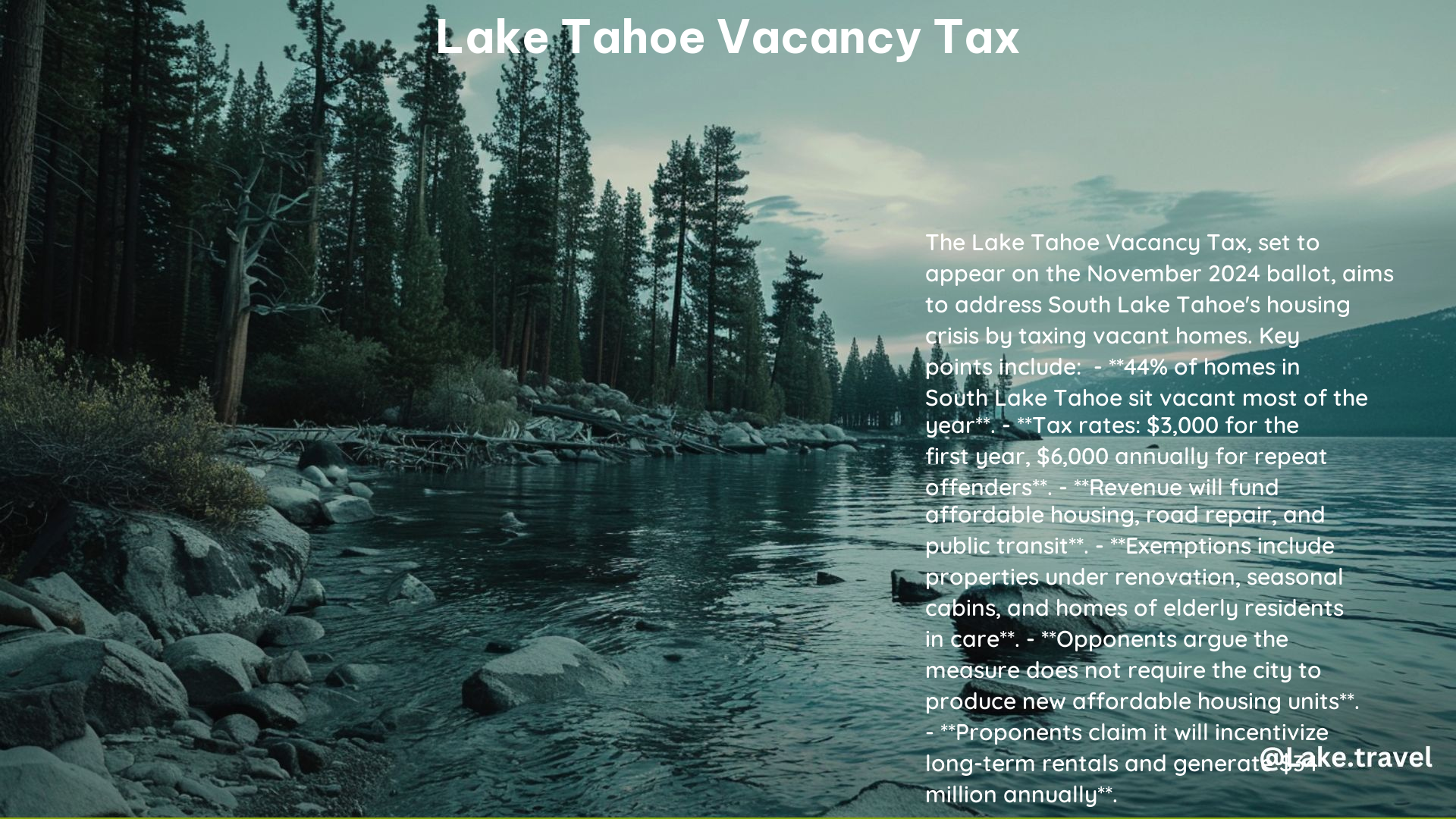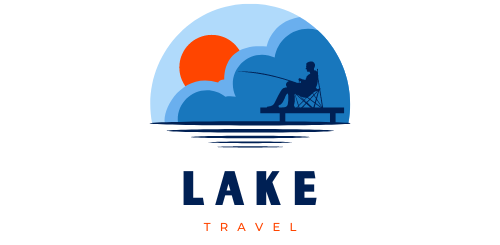The proposed Lake Tahoe Vacancy Tax aims to address the housing crisis in South Lake Tahoe by incentivizing vacant homeowners to rent their properties to locals. This comprehensive blog post delves into the key details, impact, and concerns surrounding this innovative measure.
Why is the Vacancy Tax Needed?
The housing crisis in South Lake Tahoe has reached a critical point, with 44% of homes sitting vacant most of the year. This has led to a shrinking population, a shortage of workers, and a 36% drop in school enrollment since 2000. The root of the problem lies in the abundance of vacant homes – approximately 7,150 in South Lake Tahoe – that could be utilized to provide housing for locals if properly incentivized.
How Would the Vacancy Tax Work?

The proposed Lake Tahoe Vacancy Tax would work as follows:
| Tax Details | Description |
|---|---|
| Tax Amount | Homeowners who leave their properties vacant for more than six months a year would pay a tax of $3,000 for the first year and $6,000 every year thereafter. |
| Exemptions | Properties under active renovation, seasonal cabins, homes in elder care facilities, and those with wildland firefighters or residents on military deployments would be exempt from the tax. |
| Enforcement | Enforcement would be handled through spot audits and penalties for fraudulent declarations. The City would use a small portion of the generated revenue to add staff positions to manage implementation and enforcement. |
Impact and Revenue Allocation
If the Lake Tahoe Vacancy Tax is implemented, the potential impact and revenue allocation could be significant:
- New Housing Units: If 20% of vacant homeowners rent their properties to locals, it would add more than 1,400 new housing units to the local market.
- Revenue Generation: The tax is projected to generate more than $34 million per year for workforce housing development, road repair, and essential services.
- Revenue Allocation: The revenue generated would be restricted to specified purposes, including housing, roads, and transit.
Concerns and Opposition
While the Lake Tahoe Vacancy Tax has the potential to address the housing crisis, it has also faced some concerns and opposition:
- Fairness: Some argue that taxing second homeowners is unfair, as it targets a specific group without ensuring that the revenue generated is used for affordable housing.
- Enforcement Challenges: Opponents question the city’s ability to enforce the new law, particularly in cases where second-home owners might attempt to register using their South Lake Tahoe addresses despite not living there full-time.
- Alternative Solutions: Critics argue that the measure does not require the city to produce a single new unit of affordable housing or spend any money on housing affordability at all.
Current Status
The Lake Tahoe Vacancy Tax measure has been certified to appear on the November 2024 ballot, with both supporters and opponents actively campaigning to sway public opinion.
